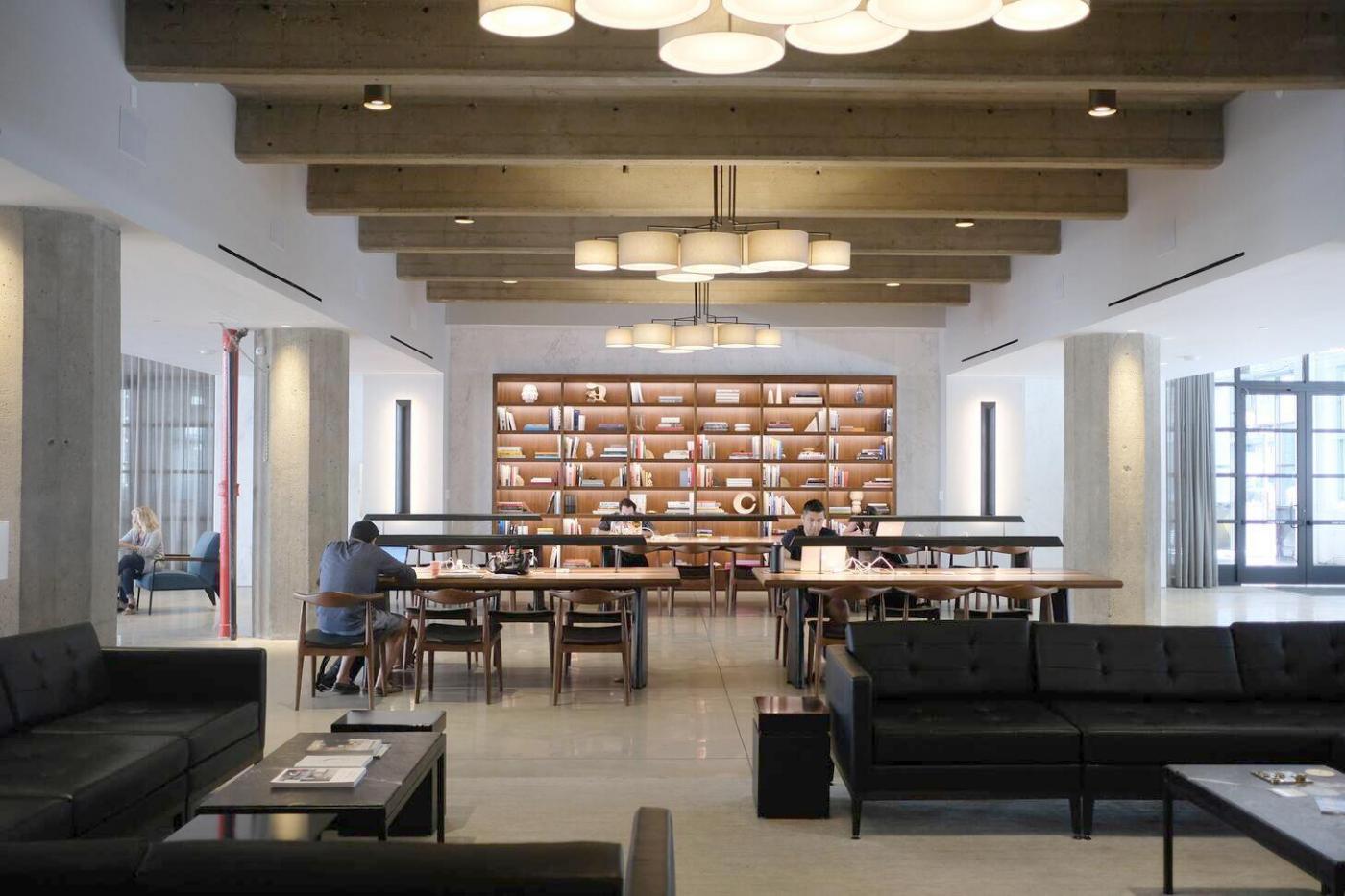Our lives have rapidly changed since the onset of the Coronavirus pandemic. The workplace, for instance, has been dramatically disrupted by the virus. Seemingly overnight, companies across the U.S. pivoted to something many had been putting off for a long time: working from home.
A recent study from the University of Chicago’s Booth School of Business estimates 37 percent of us can work remotely. Maybe the biggest news in this space has come from the tech. CEO of Twitter and Square, Jack Dorsey, has given all employees the option to work from home permanently. Facebook’s Mark Zuckerberg has said about half of their staff could be remote by 2030.
Amount of Time in the Office Post-Pandemic
It’s now clear that even after COVID-19, things aren’t going to go back to exactly how they were before the pandemic. This is reflected in a recent survey we sent to subscribers, which was taken by over 500 people. About 70 percent of respondents to the HotelsByDay poll expect to spend less time in the office post-COVID-19.
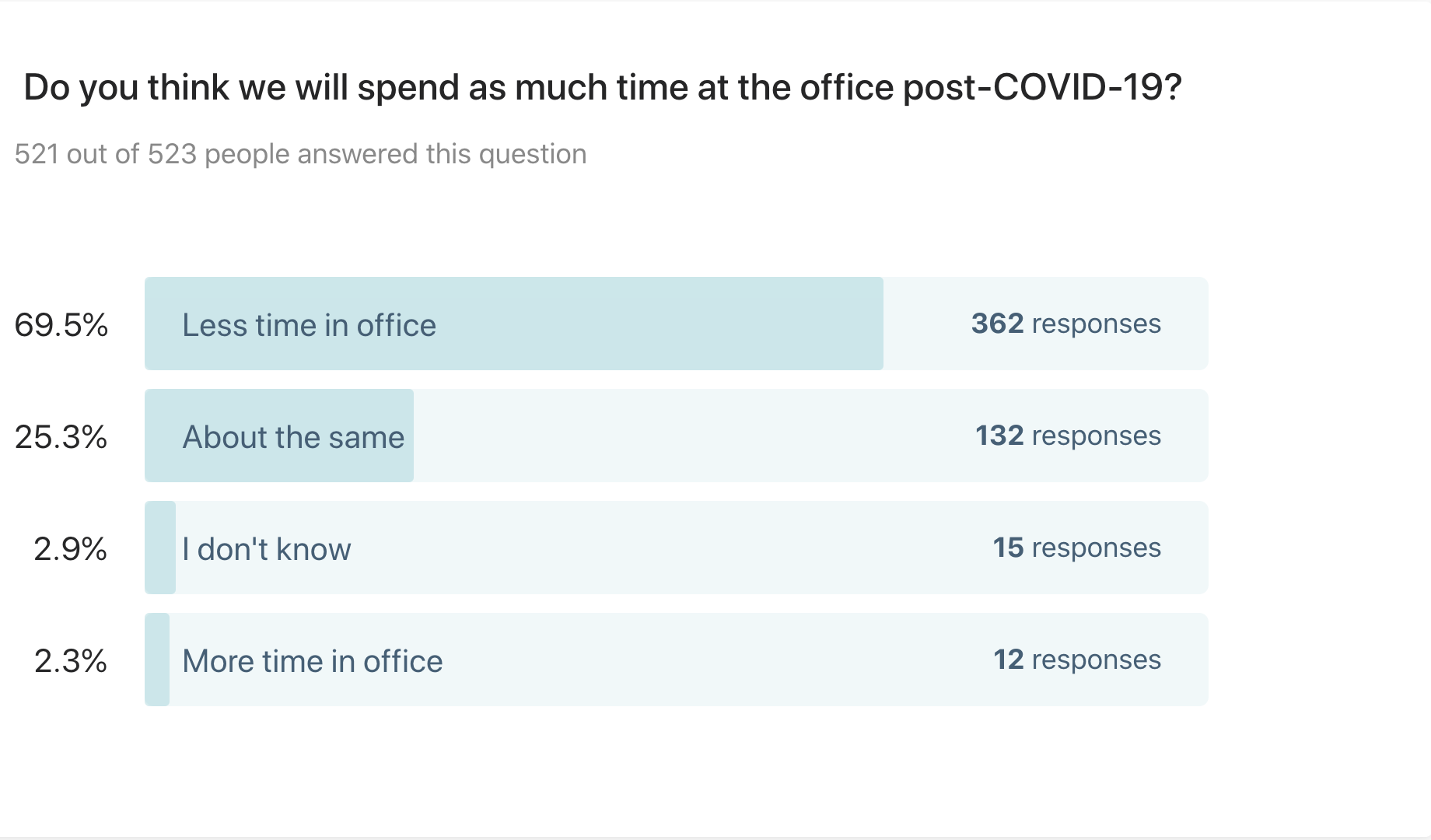
There are some major benefits that can come with working remotely. An article from Frame about the potential coming boom in suburban co-working spaces mentions a few of these:
- It saves time, as employees don’t have to commute long distances.
- Changes in commuting habits could reduce carbon emissions by over 2.5 million metric tons globally every year.
- Moving work closer to home will allow people to spend more time focusing on other important aspects of their lives instead of wasting time in transit.
- Daily routines can be refined to the taste and productivity of the employee.
- People can budget their money better when they don’t have to spend funds on commuting, extensive work wardrobes, and other office-specific costs.
- Remote work allows companies to hire the best workers no matter their location.
- Remote workers can utilize employee engagement technology to interact with their colleagues and friends as if they were still in the office.
While these are all fantastic reasons to support the remote work movement, there are some downsides as well.
Hotels Can Provide a Change of Pace to the Remote-Working Grind
In an opinion piece for The New York Times, Charlie Warzel aptly describes working from home in a less flattering light: “You are laboring in confinement, under duress.”
Depending on the individual circumstances, this is indicative of many people’s experiences with remote working—especially those with children and other pressing obligations. Warzel ultimately concludes that if we’re going to work remotely, we need to structure it so we’re thriving, not just surviving the week.
We at HotelsByDay agree with this sentiment. Transitioning to remote work is an opportunity for us to seize the day and make it our own.
There are a few factors we think make hotels prime contenders for facilitating the coworking and remote-working revolution. Hotels have an abundance of space—especially on weekdays during business hours. Whether you want to rent a private room for a few hours, sit by the pool, go to the business center, or simply just sit in a stimulating lobby, there’s no shortage of potential for utilizing hotels for remote work. According to our poll results, the vast majority of people see using one or more of these as viable options.
Preferred Service(s) for Working Remotely at a Hotel
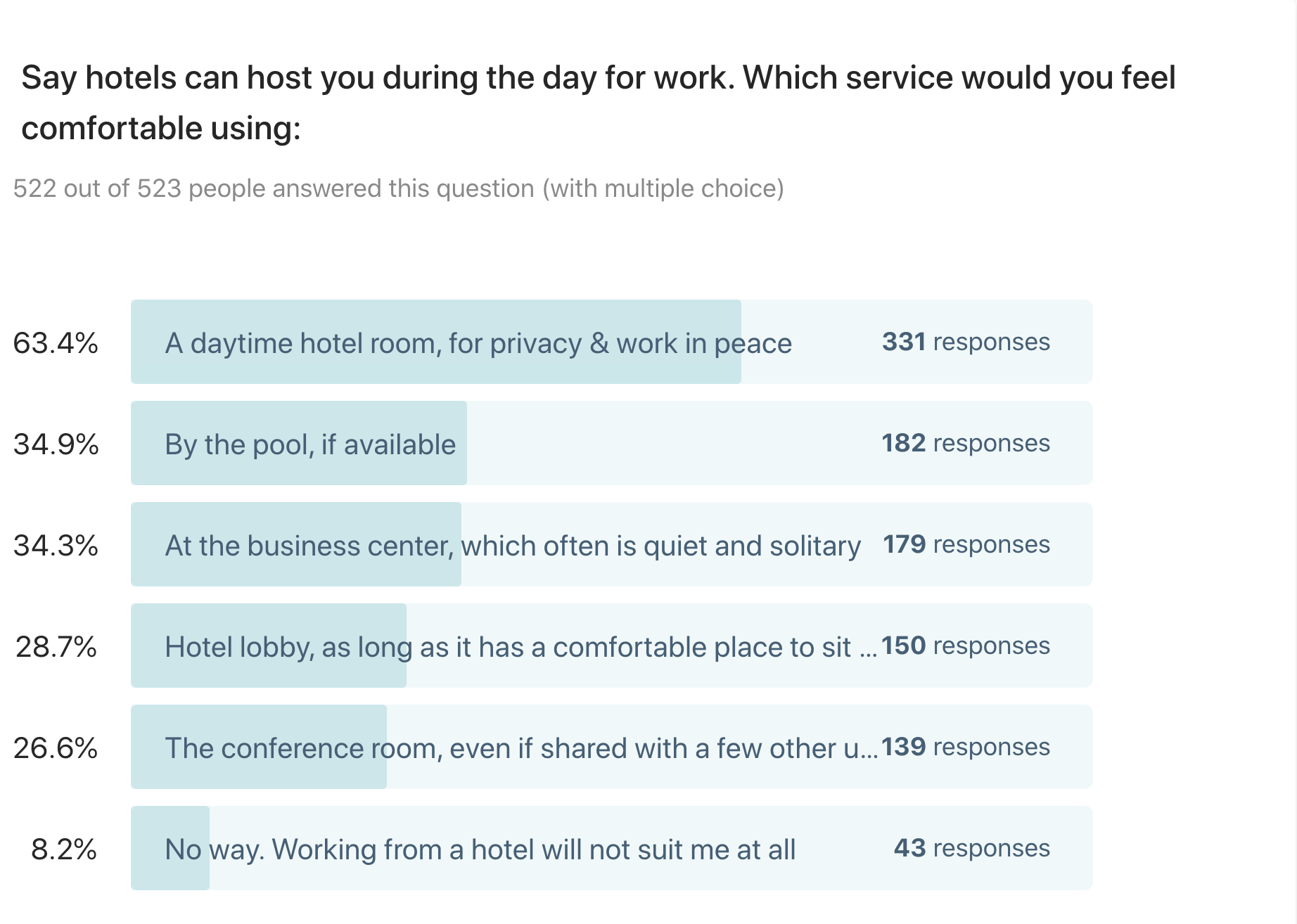
The benefits of hotels, however, don’t stop there. People have a wide variety of wants when it comes to their priorities for remotely working at a hotel. What makes hotels so uniquely positioned to become coworking and remote-working hubs is the fact they can offer all these options under the same roof.
Priorities in a Hotel Working Environment
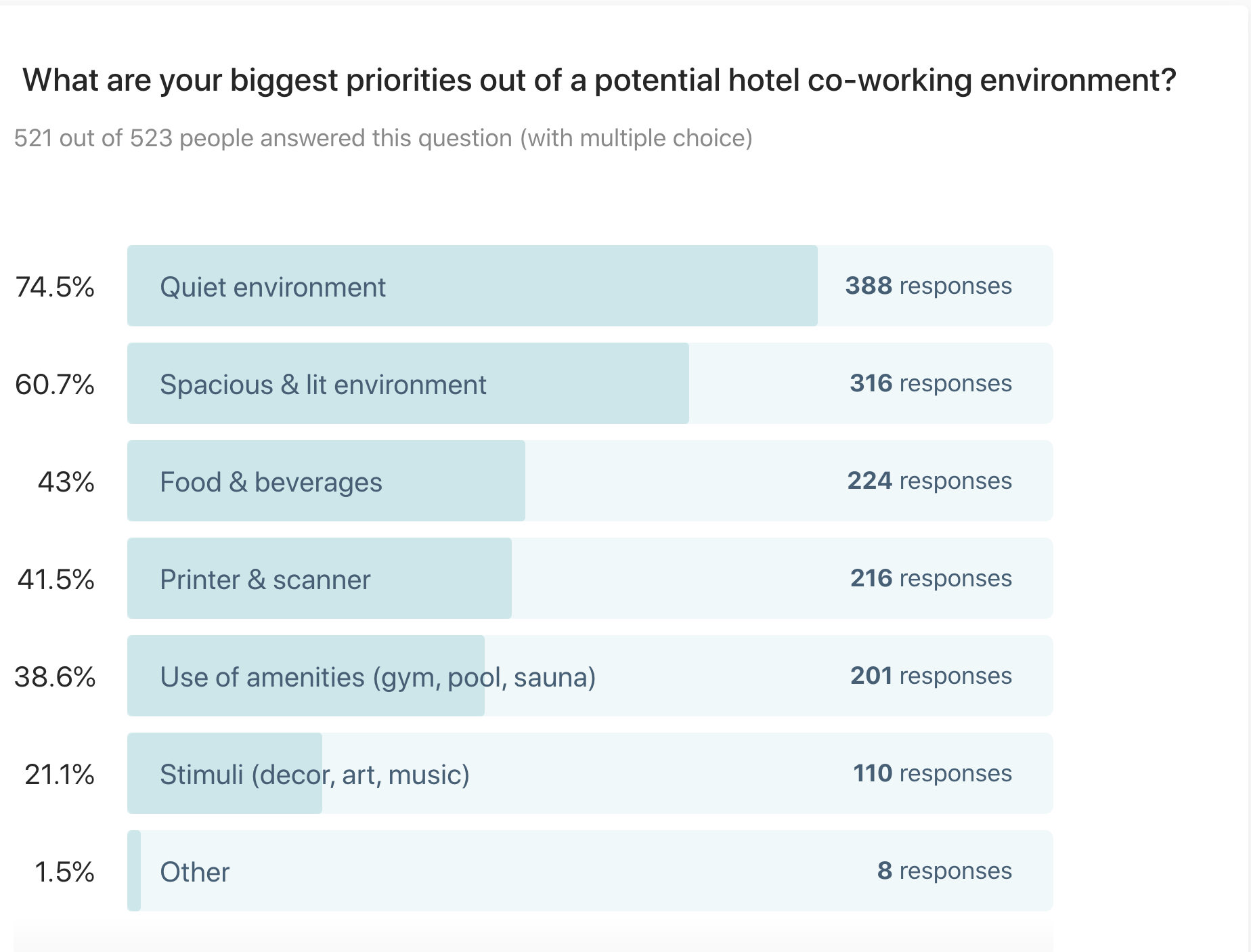
Furthermore, the diverse array of environments within one hotel allow people working remotely to have some variety in their days. The ability to immediately relax by the pool or in a sauna right after work (or on your lunch break) is an enticing amenity. Plus, the ability to effectively work at hotels will allow people greater flexibility with their work-life balance. It will become easier than ever to feel rejuvenated without blowing through all your PTO.
Of course, we’re still dealing with the Coronavirus at the moment. This is an obvious concern for any businesses that operate primarily indoors. Fortunately, hotels are generally airy spaces that allow visitors plenty of breathing room between each other. The abundance of private suites is also a benefit to hotels in this environment. The most important virus safety measure to poll respondents are things that can be easily accomplished by hotels.
Safety Measures While Working Remotely
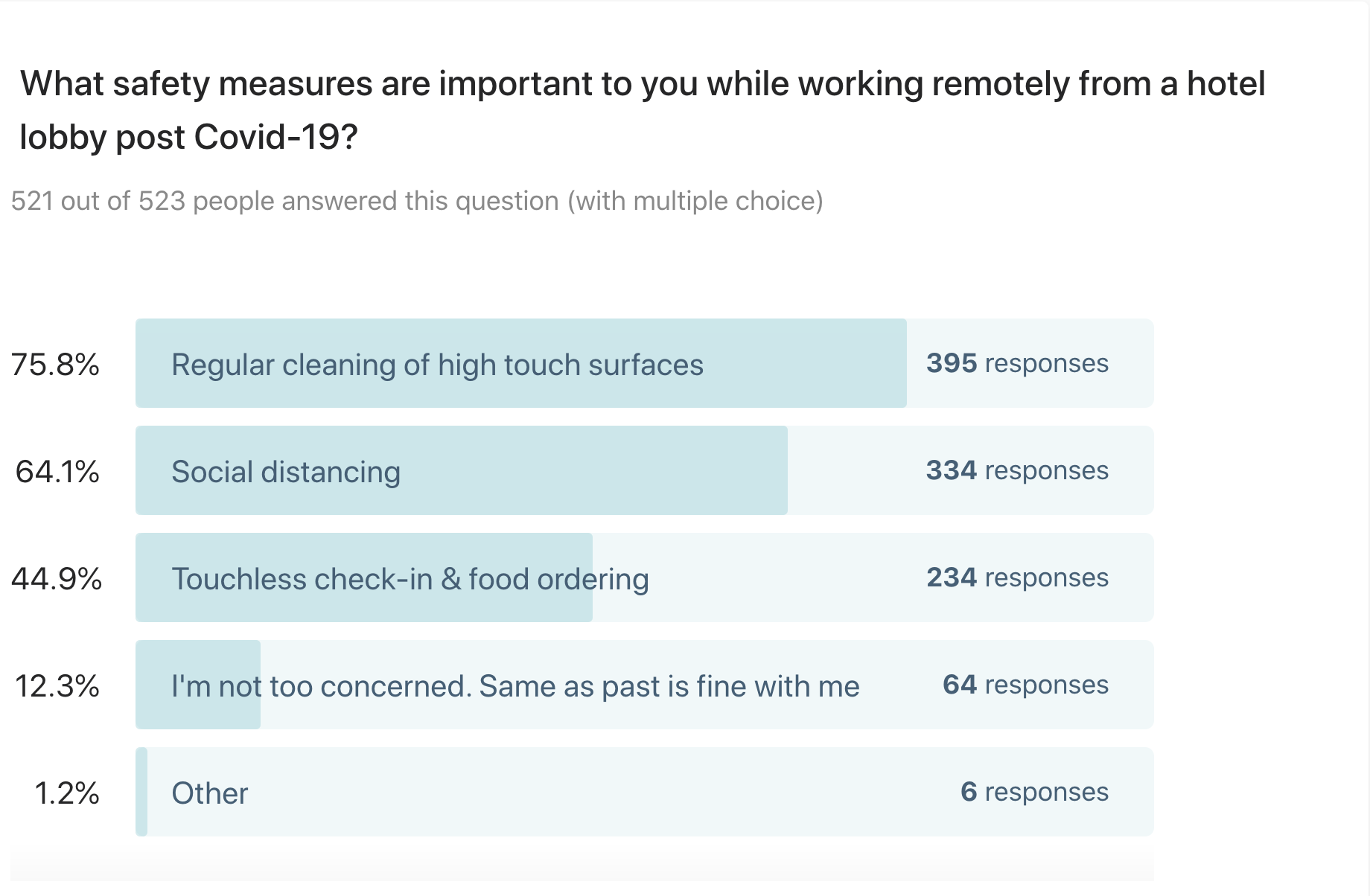
It seems harder now than ever before to know what tomorrow holds. The uncertainty drummed up by COVID-19 has challenged us all in different ways. What seems clear, however, is the way we work is going to be changed forever by Coronavirus. There’s a strong possibility that hotels will be instrumental infrastructure in building the future of remote work.
Want your voice heard in our next poll? Join our subscriber list for exclusive access!
[activecampaign form=18]
Featured image by Croissant via Unsplash

